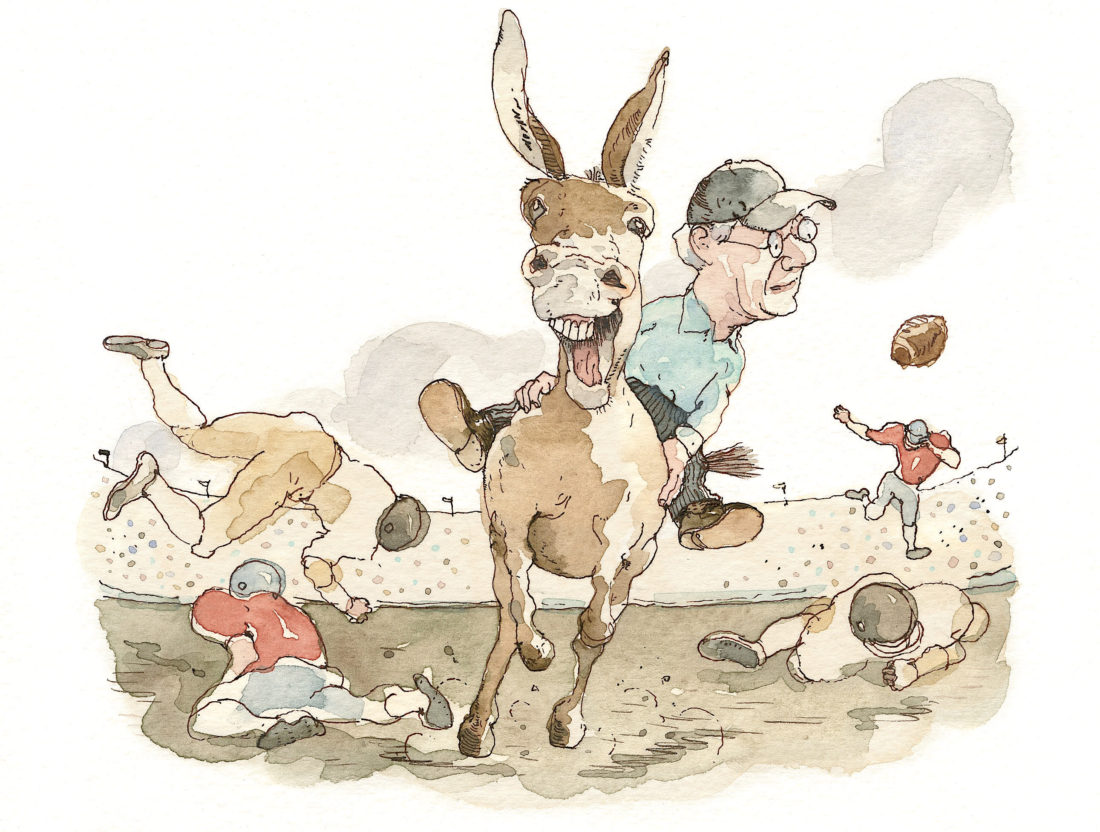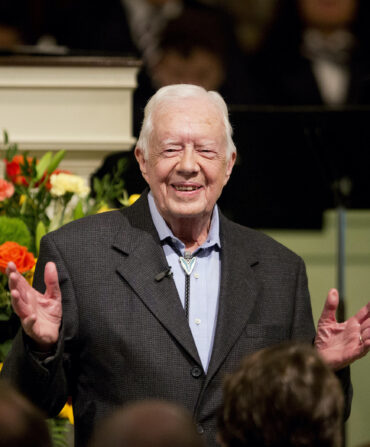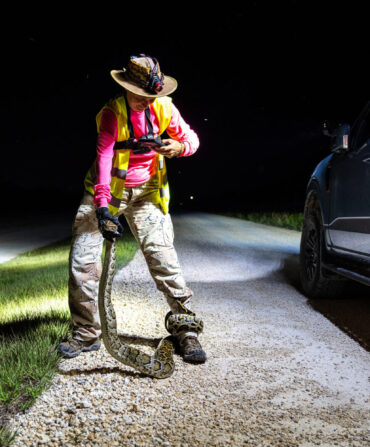Every now and then I think about creating a big flap in serious Southern-issue circles. I might accuse Faulkner of turning his back on agricultural reform because he came to realize that no-till farming, for which he had made a groundbreaking (so to speak) but not yet influential case in Plowman’s Folly, would render obsolete that great stock character of Southern fiction, the mule. If you’re just poking holes in the ground to plant your seeds, you don’t need a plow, or a devilish obstinate animal to pull it.
In other words, Faulkner forsook soil conservation so he could write a story like “Mule in the Yard.” Granted, that story is much livelier than anything in Plowman’s Folly. Faulkner has got two women and an overmatched Snopes chasing a run-amok mule all around the yard and in and out of a shed and recurrently through a “cloud of chickens” as the house catches fire.
One of the women openly enjoys it all. “Fo God!” she cries in a kind of horrified admiration of the loose mule. “He fixin to misuse de cow!” And the other woman, although it’s her house that burns down, manages to come out good on the deal.
But surely the charm of such a story fades next to such damage as tillage-by-plow has wreaked on Southern soil…
See, what I would be trying to slip past the serious-issue people—who would be thinking, hmm, something is wrong here—is that the author of Plowman’s Folly (you could look it up) was Edward H. Faulkner, not William. Meanwhile, I would be drawing attention to a brilliant feminist mule story and to the currently provocative notion (Edward H. was ahead of his time) of no-till farming.
Or I could come out with an exposé: the National Gnat Institute’s plans to build with public money a billion-dollar no-see-um museum, about which there is so much more than meets the eye.
But I can’t hope to put anything like that over on the serious Southern-issue crowd, and here’s why: I lack a crucial element of Southern credibility. Oh, I can clean fish. I chewed tobacco for many years. I know a thing or two about mules—people say they can’t reproduce? No, they just won’t.
And I do love bourbon, pole beans cooked a long time, and Willie Nelson. (This may be my chance to mention that in a song Willie recorded a few years back, in response to the terrible state of the world, he sings a yin-yang fusion comparable to Garden & Gun: “Come on back Jesus. And pick up John Wayne on the way.”)
My Southernness, however, is severely undermined by this shameful fact:
I don’t know, or care, anything about college football.
I used to. When I was ten and eleven, living in Decatur, Georgia, in the early fifties, the lifeguard at the swimming pool was Larry Morris, All-American linebacker at Georgia Tech. So I thought: That’s what I’ll be. The Georgia Tech Yellow Jackets in ’51 and ’52 won twenty-three games, lost none, tied one. And they were so cool. Coach Bobby Dodd didn’t believe in onerous practice. He didn’t emphasize brutality, like Bear Bryant over there at Alabama. The Jackets were like Br’er Rabbit, smaller and niftier than the other guys. They won by being smart.
I was smallish, at the time; and at that level, fifth and sixth grade, I was smart. And I liked football. Nobody in my family had been to college. Tech was nearby. My future was golden.
Then I learned I was not only small, I was slow, and not at all nifty. And being smart at, like, spelling was different from being smart at football. And at Tech you had to plan on being an engineer. I couldn’t imagine ever even bluffing my way into building a bridge. The part in the middle.
I got a sportswriting scholarship to Vanderbilt. Where football victory meant getting beaten by Ole Miss by less than two touchdowns. Today I can do research and toss around names like Riley Lovingood and Equanimeous St. Brown, but I can’t remember whom they play for. When I am with people on an autumn Saturday night, and they are all yelling, “Fo God! Ole Miss done actually beat somebody!” and looking to share the moment with me, I am blinking, hemming, hawing, and thinking to myself, “Ole Miss isn’t good?”
I might as well be from France.








